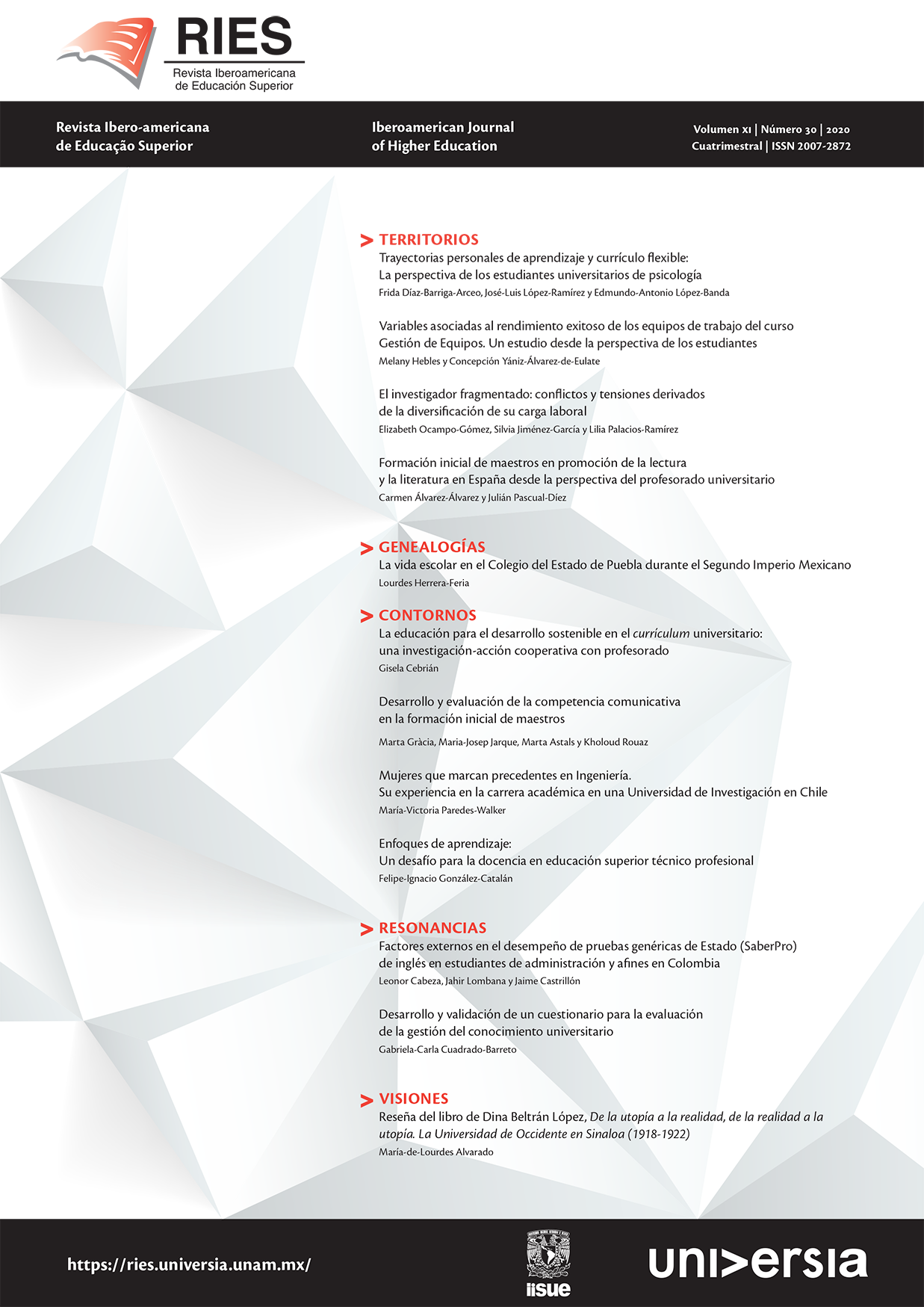The fragmented researcher: conflicts and tensions derived from the diversification of his workload
DOI:
https://doi.org/10.22201/iisue.20072872e.2020.30.587Keywords:
universities, researchers, academic performance, regulations, economic incentives, Universidad Veracruzana, MexicoAbstract
The policy of diversification of the researchers’ workload established during the 1990s gave rise to actions
aimed at the formation of networks and academic bodies, the introduction of the concept of balanced
performance profile, and the beginning of programs to stimulate academic performance. But it was
also a policy that increased labor demands by transforming academic work. This article analyzes how
the functions of researchers have diversified, the role played by incentive programs, and the way in which
both researchers and members of the spaces in which they work have responded to the modifications.
The article offers a contribution to university organizational studies by helping us to understand how
the nature of the figures, their roles and functions change, together with the university that hosts them.
It illustrates some of the dilemmas faced by researchers as a result of the implementation of financial
policies driven by mechanisms of evaluation, measurement and reward.



